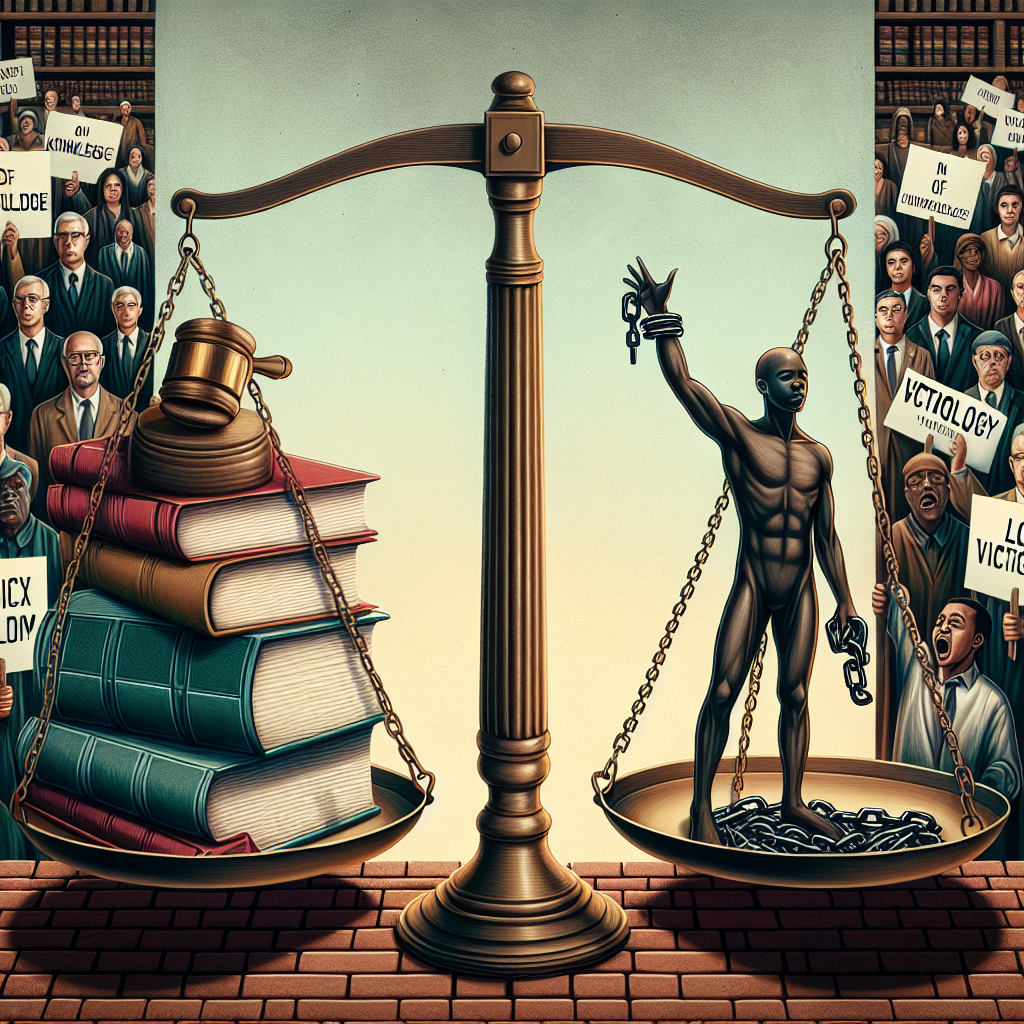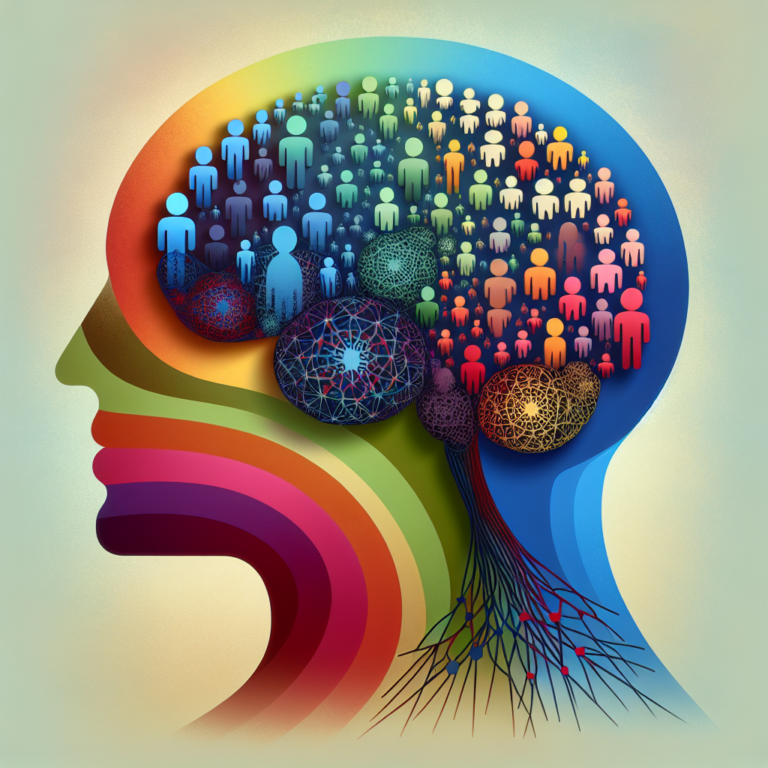
Introduction
Imagine a world where victims of crime are not sidelined but rather integrated into the criminal justice process, their voices amplified and their needs prioritized. This vision is not just a utopian aspiration; it represents a critical shift in how we view crime, justice, and rehabilitation. In recent years, there has been an increasing awareness of the value of victimology—the study of victims and their role in the criminal justice system. The role of victimology in criminal justice reform is, indeed, an essential call for action that must not be ignored.
Victimology has the potential to fundamentally transform our criminal justice system, ensuring that victims’ rights are upheld and that their voices are heard. By understanding the complexities of victims’ experiences, integrating their perspectives into law and policy, and prioritizing their needs, we can foster a more just and compassionate system. This article delves deep into the various dimensions of victimology, highlighting its significance in criminal justice reform and providing compelling insights that call for immediate action.
Understanding Victimology
What is Victimology?
Victimology is a subfield of criminology that focuses on the study of victims. It examines the impact of crime on individuals and communities, the socio-economic factors that contribute to victimization, and the responses of the legal and social systems to those affected by crime.
The Importance of Victim-Centric Approaches
A victim-centered approach emphasizes the rights and needs of victims within the criminal justice system. This perspective is essential for several reasons:
- Empowerment: Empowering victims by giving them a voice in the justice process helps in their healing journey.
- Prevention: Understanding why certain individuals are victimized can aid in the development of preventative measures.
- Reform: Legal and systemic changes can be inspired by the experiences of victims, leading to more effective and compassionate responses.
Inception of Victimology in Criminal Justice
The field of victimology emerged in the late 20th century, driven by a growing awareness of victims’ rights. Pioneering scholars in the area sought to put victims at the forefront of discussions about crime. This has since evolved into a robust framework for understanding and addressing the complexities of crime and victimization.
The Intersection of Victimology and Criminal Justice Reform
A Paradigm Shift
Historically, the criminal justice system has focused primarily on offenders. However, this narrow focus has often resulted in disservice to victims. The role of victimology in criminal justice reform is crucial in shifting this paradigm. By placing victims at the center of reform discussions, we create a more equitable system that recognizes the complexities of crime and its reverberations.
Case Study: The Marsy’s Law Movement
One significant example of the victimology movement is Marsy’s Law, which was established to enhance the rights of victims across the United States. Originally inspired by the tragic murder of Marsy Nicholas, the law aims to grant victims rights such as:
| Victim’s Rights | Description |
|---|---|
| Notification of proceedings | Victims must be informed about proceedings related to their case. |
| Right to participate | Victims can participate in hearings and legal processes. |
| Protection from the accused | Measures are taken to protect victims from intimidation. |
The passage of Marsy’s Law in various states highlights the vital need for victim rights in discussions on criminal justice reform.
The Role of Victim Services
Victim services are crucial in the realm of victimology and criminal justice reform. These services provide support to victims, including counseling, legal aid, and assistance in navigating the justice process. They not only help victims but also contribute to the overall effectiveness of the criminal justice system.
Case Study: The Crime Victims’ Fund
The Crime Victims’ Fund, established under the Victims of Crime Act (VOCA), provides essential funding for state victim compensation programs. This initiative exemplifies the role of victim services in recognizing the needs of victims while reinforcing the importance of victimology in reforming the justice system.
The Need for Comprehensive Reform
Barriers to Effective Support
Despite significant strides in victimology, numerous barriers hinder effective support for victims in the criminal justice system:
- Lack of Awareness: Many victims are unaware of their rights and available resources.
- Systemic Inefficiencies: The justice system is often slow and burdened, resulting in victims feeling overlooked.
- Cultural Stigmas: Societal stigma surrounding victimization can deter individuals from seeking help.
Advocacy and Awareness Campaigns
Effective reform requires a concerted effort to raise awareness and advocate for victims’ rights. Community-based programs can educate the public and empower victims about their rights, while lobby groups can push for legal reform aimed at enhancing victim services.
Collaborative Approaches
To tackle these barriers, collaboration between agencies, communities, and the legal system is essential. Multi-disciplinary teams can jointly address victim needs while facilitating faster resolutions and providing holistic support.
Advocating for Legal Reforms
Legislative Change
Several pieces of legislation are being proposed or enacted to address victims’ needs effectively. This includes:
- Victims’ Rights Amendments: States are increasingly amending their constitutions to elevate victims’ rights.
- Support for Victims’ Services: Increased funding for organizations that provide support to victims is vital.
The Role of Law Enforcement
Law enforcement agencies also play a critical role in recognizing victims’ needs. Training programs that emphasize victim empathy are essential for officers, enabling them to provide appropriate support which is crucial for both victim cooperation and community trust.
Case Study: The Dallas Police Department Victim Advocacy Program
The Dallas Police Department has established a Victim Advocacy Program aiming to provide immediate support to victims. This proactive approach ensures that victims receive assistance when they need it most, fostering a sense of community and trust.
Measuring Success in Victimology
Defining Metrics for Reform
To evaluate the effectiveness of victimology in the realm of criminal justice reform, it is essential to define clear metrics for success. This might include:
- Victim Satisfaction Rates: Surveys could measure how satisfied victims are with the services they receive.
- Recidivism Rates: An examination of how changes in victim services impact recidivism can provide invaluable data.
- Implementation of Rights: Monitoring the enforcement of victims’ rights can illuminate areas for improvement.
Gathering Data and Research
Ongoing research and data collection are critical for understanding the needs of victims and how well they are being met. This data will help refine strategies and ensure that victimology continues to evolve alongside societal changes.
The Broader Implications of Victimology in Society
Restorative Justice Models
Restorative justice models emphasize healing for both victims and offenders. By incorporating victim perspectives into the resolution process, restorative justice can provide a framework for meaningful dialogue and reconciliation.
Case Study: The Circle of Support Program
The Circle of Support program, utilized in various communities across Canada, invites victims, offenders, and community members to participate in healing circles. This approach emphasizes understanding and collaboration over punishment.
Community Engagement and Support
Victimology suggests that community engagement is essential for effective criminal justice reform. By fostering community resilience and support networks, we can create environments where victims find strength and empowerment.
Conclusion
The role of victimology in criminal justice reform is a call for action that resonates through the corridors of justice and the hearts of individuals. By transforming how we perceive victims and integrating their voices into our legal frameworks, we can build a more compassionate and just system.
The time for reform is now. Advocates, legal professionals, and communities must come together to ensure that victims of crime are not just statistics but are seen as integral participants in the pursuit of justice. Together, we can enact meaningful change that enhances the lives of victims and strengthens our society as a whole.
FAQs Section
1. What is victimology?
Victimology is the study of victims and their interactions with the criminal justice system, focusing on their needs, rights, and experiences.
2. Why is victimology important in criminal justice reform?
Victimology is essential because it emphasizes the needs of victims, advocating for their rights and ensuring they are treated with respect and dignity within the justice process.
3. How can communities support victims of crime?
Communities can support victims by providing resources such as counseling, legal aid, and educational programs about victim rights.
4. What legislative changes have been made to support victims?
Several states have amended their constitutions to enhance victims’ rights, and funding for victim services has generally increased.
5. How can individuals advocate for victim rights?
Individuals can advocate for victim rights by participating in awareness campaigns, supporting legislation that enhances victim services, and engaging with local victim support organizations.
By harnessing the insights of victimology, we can enact concrete changes in our legal systems that both empower victims and promote a more just society. Now is the time to take action and demand reform that prioritizes the needs of those whose lives have been disrupted by crime.















